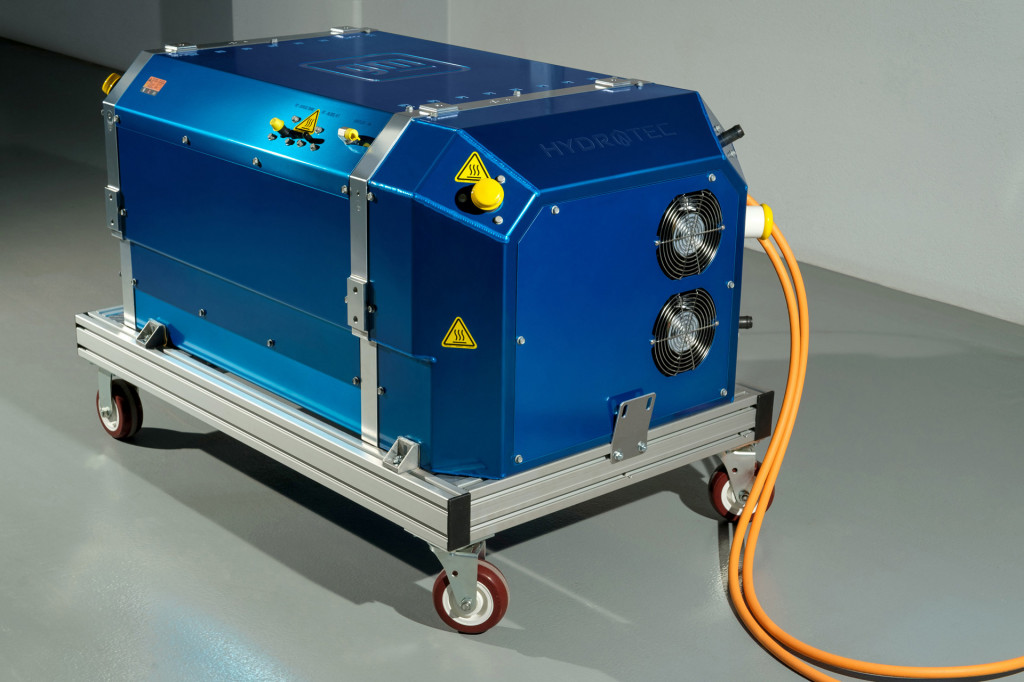General Motors will supply hydrogen fuel-cell stacks to power a future semi-trailer truck from Navistar, the two companies announced Wednesday.
The deal is similar to the one GM forged with Nikola last fall, though the new deal is slightly different as Navistar is already an established truck manufacturer.
Navistar said it plans to use the fuel-cell stacks as part of a hydrogen-electric powertrain to go into a zero-emission version of its International RH Series Class 8 semi-trailer truck.
GM's fuel-cell stack for heavy-duty trucks is known as the Hydrotec power cube. Each cube features 300 individual fuel cells and delivers 107 hp of continuous power. Two of them will be required for each Navistar truck, along with a small battery.

GM Hydrotec fuel-cell stack for trucks
Normally the truck's electric motors draw energy from the fuel-cell stacks but during high-load situations, energy can also be drawn from a battery. This battery can be relatively small since it's only used temporarily, like when the truck is accelerating hard or climbing a steep hill. The estimated range for Navistar's truck is about 500 miles on a fill of hydrogen.
As for where the hydrogen will come from, the deal also involves a company by the name of OneH2. Headquartered in Longview, North Carolina, OneH2 is a privately held company that produces hydrogen via steam-methane reforming. Although the process produces carbon, OneH2 plans to eventually introduce carbon capturing. Navistar said it will take a minority stake in OneH2 as part of the deal.
Navistar said it plans to have its first fuel-cell-powered truck ready to deliver to customers by the 2024 model year, though the company will start testing the trucks in a pilot program by the end of the 2022 calendar year.
Toyota and rival truck manufacturer Kenworth are also testing hydrogen-electric trucks, and Daimler and Volvo Trucks have also partnered on hydrogen-electric powertrains for their respective trucks.
